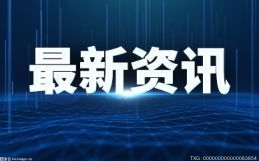International experience in the development of "specialized, special and new" enterprises

You may also be interested in:
-
International experience in the development of "specialized, special and new" enterprises -
Snowe Mining's equity auction will be held four times in seven days -
Quick information: self-employed businesses can do something in the field of political procurement -
[Broadcast information] Since this year, 17 independent directors have increased their holdings -
Express: Business pension does not enjoy personal tax preference -
Daily message! Beijing and other 10 provinces and cities will pilot commercial pension -
Message! "Goalkeeper" becomes "vanguard" and the organization is strengthened -
The central bank's month end reverse repo has intensified - explaining to the market
Today's Hot Spots
Recommended for you
The Ningxia Forestry and Grass Bureau can fully realize the whole network office
more
-
Focus on these two sectors or take the lead in breaking through after the major conference, and make a great contribution to the 23rd anniversary of the success of Barry -
Juhuasuan 99 Huasuan Festival content upgrading 5000 Taobao Tmall brands linkage carnival -
Innovation and change, transformation and strive to create close to the needs of the people, with temperature and responsibility -
Escort Beijing Life Insurance Co., Ltd. and the fifth batch of youth aid cadres and talents -
China Business CDP White Paper | Love Analysis Report -
I Love My Home Volunteer Service Team: Promote the Anti epidemic Spirit and Protect Community Peace -
Lianhua Qingwen, a traditional Chinese medicine, becomes a powerful weapon against the Omicron virus -
Lansheng Capital Liu Jun: Six Stages of the Growth of Stock Investors
more
-
International experience in the development of "specialized, special and new" enterprises -
Snowe Mining shares auction 7 days four times circuit breaker mysterious bidder increased price by 196 million yuan strong capping -
Quick information: self-employed businesses can do something in the field of political procurement -
[Broadcast information] Will the "independence" of the 17 independent directors who have completed their shareholding increase this year be affected -
Express: Business pension does not enjoy personal tax preference -
Daily message! Beijing and other 10 provinces and cities will pilot commercial pension business -
Message! "Goalkeeper" to "Forward" Mechanism to Enhance Combined Offensiveness -
The central bank's month end reverse repo efforts increased - releasing positive signals to the market
Ranking
-
The Ministry of Finance has allocated 500 million yuan of water conservancy and disaster relief funds to support all regions to do a good job in flood safety and other related matters -
The number of China's free trade agreements has nearly doubled since a decade ago -
Small and medium-sized banks have reformed insurance, and the CBRC has said so -
National Development and Reform Commission: Grasp the planning of incremental policy tools and make full efforts to ensure supply and stable price of bulk commodities -
Dynamic focus: the added value of high-tech manufacturing increased 9.6% year on year -
Reduce the burden of enterprises and increase cash flow by more than 1.6 trillion yuan (new data and new insights) -
World news: In the first half of the year, the issuance and financing of the Beijing Stock Exchange and the New Third Board increased by nearly 20% year on year -
Global quick look | Empowering rural revitalization with brand construction and building a new pattern of quality agriculture -
Global dynamics: reverse repurchase small precise liquidity is reasonable and abundant -
World News: China's manufacturing industry accounts for nearly 30% of the global added value
Wonderful push
-
Snowe Mining shares auction 7 days four times circuit breaker mysterious bidder increased price by 196 million yuan strong capping -
The total import and export volume of services in the first 10 months increased by 17.2% year on year -
International experience in the development of "specialized, special and new" enterprises -
Snowe Mining shares auction 7 days four times circuit breaker mysterious bidder increased price by 196 million yuan strong capping -
Quick information: self-employed businesses can do something in the field of political procurement -
Current focus: international experience in the development of "specialized, special and new" enterprises -
World Top: "Goalkeeper" Becomes "Forward" Organization to Enhance Combination Offensiveness -
Global Communications! Individual businesses can do something in the field of government procurement -
[Broadcast information] Will the "independence" of the 17 independent directors who have completed their shareholding increase this year be affected -
Express: Business pension does not enjoy personal tax preference -
Daily message! Beijing and other 10 provinces and cities will pilot commercial pension business -
Message! "Goalkeeper" to "Forward" Mechanism to Enhance Combined Offensiveness -
Business pension does not enjoy personal tax preference -
The central bank's month end reverse repo efforts increased - releasing positive signals to the market -
[World News] Beijing and other 10 provinces and cities will pilot commercial pension business -
World WeChat News: The central bank's reverse repo efforts increased at the end of the month - releasing positive signals to the market -
Strong support for fiscal expenditure No obvious gap in liquidity in December -
Strong support for fiscal expenditure No obvious gap in liquidity in December -
The list of top 100 cities in advanced manufacturing industry was released, and multiple measures were taken to promote the rapid and healthy development of advanced manufacturing industry -
Zhao Lijian said that China has made great efforts to ensure the stability of the global supply chain and promote the development of the world economy -
Daily News: Zhao Lijian said that in order to ensure the stability of the global production and supply chain and promote the world economy -
The list of the world's top 100 cities in advanced manufacturing industry has been released, and various measures have been taken to promote advanced manufacturing -
Viewpoint: The Ministry of Industry and Information Technology announced the list of advanced manufacturing clusters in 45 countries based on regional comparison -
Daily quick look: the Ministry of Industry and Information Technology announced the list of 45 national advanced manufacturing clusters based on the region -
Daily broadcast! Development and Reform Commissions all over the country work together to expand effective investment and stabilize the overall economy -
Colorectal cancer: I'm afraid you eat these foods! -
Know everything every day! Headline of prospective IPO: 2 times 2, Huilong Piston successfully passed the meeting! Diligence Resources -
Daily news: the last nail is being nailed on the "coffin board" of fuel vehicles -
Daily communication! The Ministry of Industry and Information Technology announced the list of 45 national advanced manufacturing clusters Beijing Tianjin Hebei Life -
Development and Reform Commissions all over the country work together to expand effective investment and stabilize the overall economy -
World news: The Ministry of Industry and Information Technology announced the list of 45 national advanced manufacturing clusters -
News: Ministry of Commerce: China's total service import and export in the first 10 months increased by 17.2% year-on-year to 4918.55 billion yuan -
Current speed reading: This change in the female brain during pregnancy may affect the mother baby relationship! -
Current observation: your child is more "smart" than you? The reason is -
Dinghe Insurance Company successfully won the bid for the operation period insurance project of Vietnam Yongxin Coal fired Power Plant Phase I Project -
"Time and space travel" has become a reality? Scientists have made new discoveries about wormholes! -
Everyday Micro Dynamics Where will China's top 100 industries go in the next decade? -
[Daily hot smell] 1. 9 billion a year! The two families have jointly run colleges and universities for 15 years -
Ministry of Commerce: China's total service import and export in the first 10 months increased by 17.2% year-on-year to 4918.55 billion yuan -
Development and Reform Commissions all over the country work together to expand effective investment and stabilize the overall economy -
Ministry of Finance: The total operating revenue of state-owned enterprises in the first 10 months increased 8.9% year on year -
Daily news! Steady growth requires renewed efforts -
The Research Institute of the Ministry of Commerce and Hehe Information Qixinbao released the report on business credit development index -
New global trends: Development and Reform Commissions all over the world work together to expand effective investment and stabilize the overall economy -
Look around the world! Report: Family wealth and income in the third quarter were basically the same as those in the previous quarter -
Steady growth requires renewed efforts -
Ministry of Finance: The total operating revenue of state-owned enterprises in the first 10 months increased 8.9% year on year -
World hotspot! Report: Family wealth and income in the third quarter were basically the same as those in the previous quarter -
Ministry of Finance: From January to October, the total operating revenue of state-owned enterprises was 66419.96 billion yuan, up 8.9% year on year -
Focus: The Research Institute of the Ministry of Commerce and Hehe Information Qixinbao released the report on business credit development index -
Ministry of Commerce: China's knowledge intensive service trade grew steadily from January to October -
Global SMS! Ministry of Finance: From January to October, the total operating revenue of state-owned enterprises was 66419.96 billion yuan -
Rolling: Ministry of Commerce: continue to play the role of the normalized exchange mechanism with foreign enterprises to help -
Ministry of Commerce: China's total import and export of services increased by 17.2% in the first 10 months -
Global hot discussion: Ministry of Commerce: China's service trade continued to grow from January to October -
News: Ministry of Commerce: China's total import and export of services in the first 10 months increased by 17.2% year on year -
Ministry of Commerce: China's total import and export of services in the first 10 months increased by 17.2% year on year -
Milk Pup Pup Punch Ningbo Hanji, Opening the Christmas Special Exhibition -
The other half doesn't tell you where to go when they go out? Teach you how to locate with one photo -
World hot: economic prosperity index has been declining continuously, and steady growth needs to be strengthened -
How to cook the thick tremella? Let's have a look -
What are the types of skin diseases infected? How to prevent skin diseases? -
Can people with high uric acid eat fruit? Can it prevent gout? -
Who has the smallest waist in the world? Myanmar Girl Breaks World Record -
What to watch now! The indicator of economic prosperity has continued to decline, and more efforts should be made to stabilize growth -
How should leukaemia patients eat when undergoing chemotherapy? -
What is DINK? Why do more and more people choose DINK? -
Do you know the six ways of mobile phone projection to play mobile games on TV? -
What are the good brands of water dispensers? How much is a household water dispenser? -
Why can't the money of Yu'e Bao be transferred out? Why can't I transfer out in real time? -
What does a woman mean when she says you are a bosom friend? -
What is Fourier's law of heat conduction? Is Fourier's law the basic law? -
What is the cleaning method of color inkjet printer? What are the precautions? -
Serving the real economy, the scale of A-share equity financing reached 1.45 trillion yuan in the year -
Daily WeChat News: Interpretation of the loss determination rules of the new judicial interpretation of false statements -
Global News: The Central Bank's Operation Releases Signals and the Attitude of Protecting Liquidity Remains unchanged -
Headline: The Central Bank's Operation Releases Signals and the Attitude of Protecting Liquidity Is Unchanged -
[Daily News] China calls on the 1540 Committee to help developing countries strengthen non-proliferation -
Global Information: Interpretation of the loss determination rules of the new judicial interpretation of false statements -
Daily News | Serve the real economy The scale of A-share equity financing reached 1.45 trillion yuan in the year -
World video! China calls on the 1540 Committee to help developing countries strengthen their non-proliferation capacity -
"One improvement, one protection" of Made in China is imminent -
Multi regional deployment of a new round of manufacturing development Strong manufacturing still needs strong "service" -
Spokesperson of the Ministry of Foreign Affairs - China has always been the initiator and promoter of an open world economy -
[Newsletter] Deploy a new round of manufacturing industry in multiple places, strengthen manufacturing, and strengthen "service" -
Spokesperson of the Ministry of Foreign Affairs - China has always been the initiator and promoter of an open world economy -
"One improvement, one protection" of Made in China is imminent -
Hot recommendation: the total operating revenue of state-owned enterprises in the first 10 months increased by 8.9% year on year -
(Economy) Total operating revenue of state-owned enterprises in the first 10 months increased 8.9% year on year -
World Report: Total operating revenue of state-owned enterprises in the first 10 months increased 8.9% year on year -
World view hot spot: Ministry of Industry and Information Technology: national innovation demonstration base should promote small and medium-sized enterprises -
World Express: Want to know if you have Parkinson's disease? Scientists suggest that you check -
Highlights: The newly developed smart bandage can accelerate wound healing without leaving scars! -
Focus: See you soon! Brain "inflammation" will reduce the risk of Alzheimer's disease -
Global hotspot! Ministry of Industry and Information Technology: The national innovation demonstration base should promote small and medium-sized enterprises -
World Express: Ministry of Finance: further increase the support for delaying repayment of principal and interest on loans to small and micro enterprises -
Hot article every day: The National Development and Reform Commission Operation Bureau organized and held some industry economic operation points -
The profit is up to 80%, and 2000 new companies are added in a year. This "unlucky" industry ushers in a big explosion -
The National Development and Reform Commission publicized the list of National Enterprise Technology Center to be recognized in 2022 (the 29th batch) -
The Operation Bureau of the National Development and Reform Commission organized a video conference on economic operation analysis of some industries
this Daily news
-
What are the good brands of water dispensers? How much is a household water dispenser? -
Why can't the money of Yu'e Bao be transferred out? Why can't I transfer out in real time? -
What is Fourier's law of heat conduction? Is Fourier's law the basic law? -
Can we borrow money from WeChat micro loan? Is the interest rate for borrowing money high? -
How to check personal credit? How to judge the query results? -
How to check personal credit? Can I check the personal online banking of commercial banks? -
What is the reason for Alipay's monthly inexplicable deduction? How to cancel? -
What is the abbreviation of Guangxi? Which is the capital city of Guangxi Province? -
What is a small property house? Does the house with small property rights have a property right certificate? -
How many countries have space shuttles? What is the name of the first space shuttle in the world?







